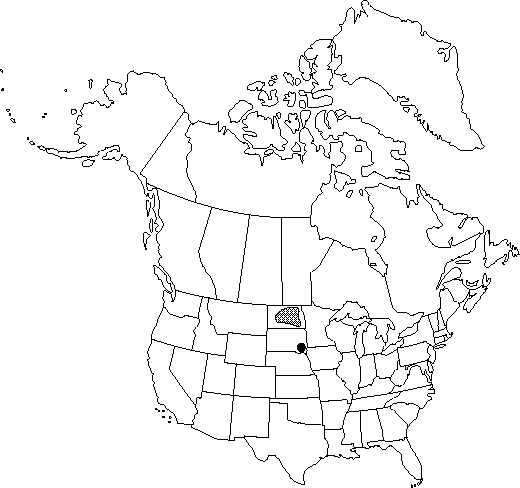Difference between revisions of "Fumaria vaillantii"
J. Bot. (Desvaux) 2: 358. 1809.
Introduced
Treatment appears in FNA Volume 3. Treatment on page 357.
FNA>Volume Importer |
imported>Volume Importer |
||
| (7 intermediate revisions by 2 users not shown) | |||
| Line 6: | Line 6: | ||
|place=2: 358. 1809 | |place=2: 358. 1809 | ||
|year=1809 | |year=1809 | ||
| + | }} | ||
| + | |special_status={{Treatment/ID/Special_status | ||
| + | |code=I | ||
| + | |label=Introduced | ||
}} | }} | ||
|basionyms= | |basionyms= | ||
| Line 16: | Line 20: | ||
}}<!-- | }}<!-- | ||
| − | --><span class="statement" id="st- | + | --><span class="statement" id="st-undefined" data-properties=""><b>Plants </b>5-50 cm. <b>Inflorescences</b>, excluding peduncle, 1-4.5 cm; bracteoles 1/2-3/4 as long as pedicels. <b>Flowers</b>: pedicel straight and spreading to ascending in fruit, 1-3 mm; corolla 5-6 mm, spur 1-1.5 mm; petals pink or deep pink near base, deep pink or purple apically. <b>Capsules</b> subglobose, frequently longer than broad, 1.7-2.5 mm diam., slightly wrinkled or shallowly pitted. <b>2n</b> = 32.</span><!-- |
-->{{Treatment/Body | -->{{Treatment/Body | ||
|phenology=Flowering spring. | |phenology=Flowering spring. | ||
|habitat=Open, disturbed places | |habitat=Open, disturbed places | ||
| − | |distribution=N.Dak.;S.Dak.;Europe;w Asia;n Africa | + | |distribution=N.Dak.;S.Dak.;Europe;w Asia;n Africa. |
| + | |introduced=true | ||
|discussion=<p>The description here is taken in part from Flora of the Great Plains (Great Plains Flora Association 1986), where the specific epithet is misspelled "vaillentii," supplemented by measurements from specimens of European origin in the Harvard University Herbaria.</p> | |discussion=<p>The description here is taken in part from Flora of the Great Plains (Great Plains Flora Association 1986), where the specific epithet is misspelled "vaillentii," supplemented by measurements from specimens of European origin in the Harvard University Herbaria.</p> | ||
|tables= | |tables= | ||
| Line 31: | Line 36: | ||
-->{{#Taxon: | -->{{#Taxon: | ||
name=Fumaria vaillantii | name=Fumaria vaillantii | ||
| − | |||
|authority=Loiseleur Deslongchamps | |authority=Loiseleur Deslongchamps | ||
|rank=species | |rank=species | ||
| Line 40: | Line 44: | ||
|phenology=Flowering spring. | |phenology=Flowering spring. | ||
|habitat=Open, disturbed places | |habitat=Open, disturbed places | ||
| − | |distribution=N.Dak.;S.Dak.;Europe;w Asia;n Africa | + | |distribution=N.Dak.;S.Dak.;Europe;w Asia;n Africa. |
|introduced=true | |introduced=true | ||
|reference=None | |reference=None | ||
|publication title=J. Bot. (Desvaux) | |publication title=J. Bot. (Desvaux) | ||
|publication year=1809 | |publication year=1809 | ||
| − | |special status= | + | |special status=Introduced |
| − | |source xml=https:// | + | |source xml=https://bitbucket.org/aafc-mbb/fna-data-curation/src/2e0870ddd59836b60bcf96646a41e87ea5a5943a/coarse_grained_fna_xml/V3/V3_973.xml |
|genus=Fumaria | |genus=Fumaria | ||
|species=Fumaria vaillantii | |species=Fumaria vaillantii | ||
| − | |||
| − | |||
| − | |||
| − | |||
| − | |||
| − | |||
| − | |||
| − | |||
| − | |||
| − | |||
| − | |||
| − | |||
| − | |||
| − | |||
}}<!-- | }}<!-- | ||
-->[[Category:Treatment]][[Category:Fumaria]] | -->[[Category:Treatment]][[Category:Fumaria]] | ||
Latest revision as of 21:52, 5 November 2020
Plants 5-50 cm. Inflorescences, excluding peduncle, 1-4.5 cm; bracteoles 1/2-3/4 as long as pedicels. Flowers: pedicel straight and spreading to ascending in fruit, 1-3 mm; corolla 5-6 mm, spur 1-1.5 mm; petals pink or deep pink near base, deep pink or purple apically. Capsules subglobose, frequently longer than broad, 1.7-2.5 mm diam., slightly wrinkled or shallowly pitted. 2n = 32.
Phenology: Flowering spring.
Habitat: Open, disturbed places
Distribution

Introduced; N.Dak., S.Dak., Europe, w Asia, n Africa.
Discussion
The description here is taken in part from Flora of the Great Plains (Great Plains Flora Association 1986), where the specific epithet is misspelled "vaillentii," supplemented by measurements from specimens of European origin in the Harvard University Herbaria.
Selected References
None.
Lower Taxa
None.